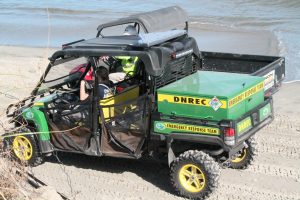The cleanup of an oil spill from an unknown source continues Monday, one week after oil patties first washed ashore on Broadkill Beach and began migrating to other Delaware beaches on both the Delaware Bay and the Atlantic Coast. About 55 tons – enough to fill four construction dumpsters – had been successfully recovered through Sunday afternoon under the unified command of the United States Coast Guard and Delaware Department of Natural Resources and Environmental Control.
“The job of removing oil from our beaches is challenging and labor-intensive, but we’re making progress,” said DNREC Secretary Shawn Garvin. “Our teams are getting more and more of it off our beaches every day.”
More than 100 personnel have been engaged in the cleanup operation daily over most of the last week, working where needed along the Delaware coastline. Surveys over the weekend and early Monday found small globs of oil and oily debris scattered from Bowers Beach to Fenwick Island. An additional information advisory originally issued for bay beaches last week was extended to some ocean beaches, which now includes the following areas: Slaughter Beach, Fowler Beach, Prime Hook Beach, Broadkill Beach, Lewes, Cape Henlopen State Park, Rehoboth Beach, Dewey Beach and the Indian River Inlet.
The towns of Lewes and Dewey Beach closed their beaches temporarily due to the oil that washed up on shore, some of it settling into a gravel-like substance, known as tar balls. Signs were posted by local authorities at beach crossovers and on dune fences informing the public to avoid the oil patties and tar balls at the water’s edge, and of area closures. The 4-wheel drive surf fishing crossing at Delaware Beach Plum Island Preserve, overseen by Delaware State Parks, also remains closed so cleanup operations will 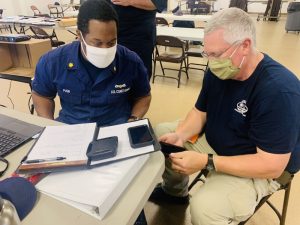 not be hampered by vehicles tracking oil onto the sand.
not be hampered by vehicles tracking oil onto the sand.
“Our crews and technology are yielding positive results,” said USCG Lt. Cmdr. Fredrick Pugh, federal incident commander. “We’re seeing a lot of this pollutant coming off of our beaches by the ton and that feels like a high level of productivity, but we’re not letting up. These communities need their beaches back.”
The unified command received additional reports of oiled birds, but they were not encumbered by the oil. Tri-State Bird Rescue & Research of Newark remains on standby to treat any birds that may require rehabilitation.
While the oil spill cleanup continues, the Coast Guard and DNREC strongly advise the public not to handle any oily product found or attempt to assist affected wildlife along the shore, but to report these findings to DNREC’s environmental hotline at 800-662-8802 so the situations can be addressed by hazmat-trained professionals.
About DNREC
The Delaware Department of Natural Resources and Environmental Control protects and manages the state’s natural resources, protects public health, provides outdoor recreational opportunities and educates Delawareans about the environment. For more information, visit the website and connect with DNREC on Facebook, Twitter or LinkedIn.
Media Contacts: Nikki Lavoie, nikki.lavoie@delaware.gov; Michael Globetti, michael.globetti@delaware.gov
###
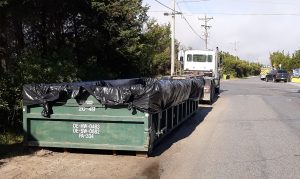
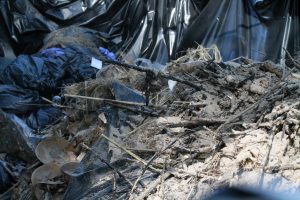 Crew members from Coast Guard Marine Safety Detachment Lewes, DNREC, Lewis Environmental, a remediation contractor, and Tri-State Bird Rescue and Research are currently on scene conducting cleanup operations, responding to and investigating reports of wildlife impacted by oil, and assessing the oil spill’s shoreline and waterway impact. Currently, there are more than 75 contractors, DNREC responders and Coast Guard personnel responding to the incident.
Crew members from Coast Guard Marine Safety Detachment Lewes, DNREC, Lewis Environmental, a remediation contractor, and Tri-State Bird Rescue and Research are currently on scene conducting cleanup operations, responding to and investigating reports of wildlife impacted by oil, and assessing the oil spill’s shoreline and waterway impact. Currently, there are more than 75 contractors, DNREC responders and Coast Guard personnel responding to the incident.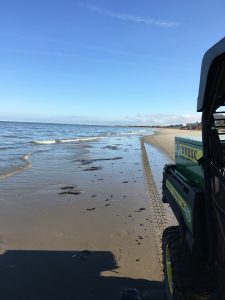 Slaughter Beach.
Slaughter Beach.